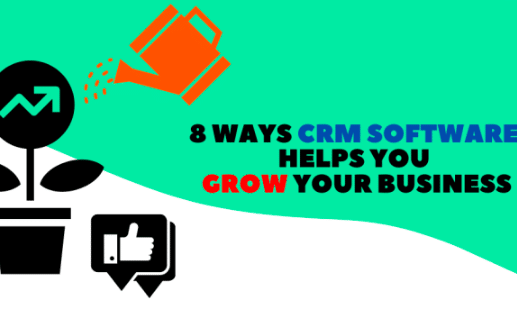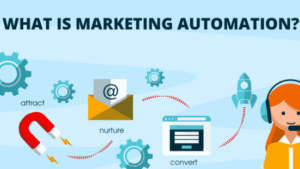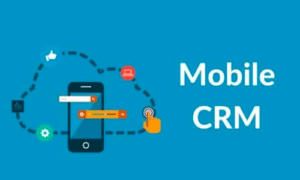crm.klikjabar.id – Ways CRM Helps You Grow Your Business – Welcome to the exciting world of Customer Relationship Management (CRM) and the myriad ways it can revolutionize your business growth.
In this comprehensive guide, we will explore how a well-implemented CRM system can be your secret weapon to building stronger customer relationships, driving sales, and enhancing overall business performance.
The Power of CRM: A Game-Changer for Your Business

CRM is not just another tool; it’s a strategic approach that empowers businesses to better understand their customers, anticipate their needs, and provide personalized experiences. By collecting and analyzing valuable customer data, businesses can make informed decisions and tailor their marketing efforts for maximum impact.
1. Streamlining Sales with CRM

One of the key benefits of CRM is its ability to streamline the sales process. By centralizing customer data, sales teams can easily access essential information, such as past interactions, purchase history, and preferences, enabling them to approach prospects with a personalized touch. LSI Keywords: Sales efficiency, Customer data centralization.
2. Enhancing Customer Service with CRM
Happy customers are loyal customers, and CRM plays a crucial role in delivering exceptional customer service. By tracking customer inquiries, complaints, and feedback, businesses can resolve issues promptly and demonstrate that they value their customers. LSI Keywords: Customer satisfaction, Prompt issue resolution.
3. Personalization: The Key to Customer Engagement
In today’s competitive landscape, generic marketing messages no longer cut it. With CRM, businesses can create highly targeted marketing campaigns that resonate with individual customers. Personalization fosters stronger customer engagement, leading to increased conversions and long-term loyalty. LSI Keywords: Targeted marketing, Enhanced engagement.
4. Unleashing the Potential of Customer Data
The data collected through CRM systems is a goldmine of insights. By analyzing this data, businesses can identify trends, preferences, and pain points, enabling them to make data-driven decisions and stay ahead of the competition. LSI Keywords: Data analysis, Informed decision-making.
5. Nurturing Leads and Converting Prospects
CRM enables businesses to track leads and automate nurturing processes, ensuring that no potential customer falls through the cracks. With timely follow-ups and personalized communications, prospects are more likely to convert into paying customers. LSI Keywords: Lead nurturing, Automated follow-ups.
6. Driving Customer Retention and Loyalty
A loyal customer base is the foundation of a successful business. CRM helps in nurturing long-lasting relationships with customers through targeted loyalty programs, exclusive offers, and personalized incentives. LSI Keywords: Customer loyalty, Retention strategies.
7. Harnessing the Power of Social CRM
In the age of social media, CRM has evolved to include Social CRM. By monitoring social media platforms, businesses can gain valuable insights into customer sentiments and engage with them in real-time. LSI Keywords: Social media monitoring, Real-time engagement.
8. Maximizing Upselling and Cross-Selling Opportunities
Existing customers are more likely to purchase from your business again. CRM identifies upselling and cross-selling opportunities based on customer behavior and purchase history, increasing revenue and customer lifetime value. LSI Keywords: Upselling strategies, Cross-selling benefits.
9. Improving Forecasting and Planning
CRM’s data-driven approach enables businesses to make accurate sales forecasts and plan inventory, resources, and marketing campaigns accordingly. This foresight allows businesses to operate efficiently and reduce unnecessary costs. LSI Keywords: Sales forecasting, Resource planning.
10. Enhancing Collaboration and Communication
CRM promotes seamless collaboration among different departments, from sales and marketing to customer service. By sharing customer data and insights, teams can work together more effectively to achieve common goals. LSI Keywords: Team collaboration, Integrated communication.
11. Leveraging CRM Analytics for Business Insights
Data analytics is an integral part of CRM, offering businesses valuable insights into customer behavior, market trends, and campaign performance. These insights allow businesses to refine strategies and make data-backed decisions. LSI Keywords: CRM analytics, Data-backed decisions.
12. Integrating CRM with Marketing Automation
Combining CRM with marketing automation tools allows businesses to automate repetitive tasks, nurture leads, and deliver personalized content at scale. This integration boosts marketing efficiency and effectiveness. LSI Keywords: Marketing automation, Personalized content delivery.
13. Building Long-Term Customer Relationships
CRM is not just about short-term gains; it’s about building lasting customer relationships. By understanding customer needs and preferences, businesses can create tailored experiences that keep customers coming back for more. LSI Keywords: Tailored experiences, Long-term relationships.
14. Scaling Your Business with CRM
As your business grows, managing customer relationships becomes more complex. CRM scales with your business, ensuring that you can continue providing top-notch customer experiences, no matter the size. LSI Keywords: Scalability, Growing business.
15. Addressing Customer Churn with CRM
Customer churn can be detrimental to business growth. CRM helps in identifying early warning signs of potential churn, allowing businesses to take proactive measures to retain customers. LSI Keywords: Churn prevention, Customer retention.
16. Customizing CRM for Industry-Specific Needs
Different industries have unique requirements, and CRM can be customized to cater to those specific needs. From healthcare to e-commerce, tailor your CRM system to optimize results. LSI Keywords: Industry-specific CRM, Customization benefits.
17. Overcoming CRM Implementation Challenges
Implementing a CRM system may come with its challenges, such as resistance from employees or integration issues. Addressing these challenges is essential to maximize the benefits of CRM. LSI Keywords: CRM implementation, Overcoming obstacles.
18. Embracing Mobile CRM for Flexibility
With the rise of remote work and mobile devices, Mobile CRM ensures that your team can access crucial customer data on the go, staying connected and productive at all times. LSI Keywords: Remote access, Mobile productivity.
19. Data Security and Privacy in CRM
As customer data becomes a valuable asset, safeguarding it is of utmost importance. CRM systems prioritize data security and privacy to protect both businesses and customers. LSI Keywords: Data protection, Privacy compliance.
20. CRM and Customer Feedback: The Continuous Improvement Loop
CRM facilitates the collection and analysis of customer feedback, providing businesses with valuable insights for continuous improvement and innovation. LSI Keywords: Feedback analysis, Continuous improvement.
21. Measuring CRM ROI: Quantifying the Impact
ROI measurement is crucial to evaluate the effectiveness of CRM investments. By tracking key performance indicators (KPIs), businesses can assess the tangible benefits of their CRM implementation. LSI Keywords: ROI measurement, KPI tracking.
22. Integrating CRM with Customer Support Systems
Integrating CRM with customer support systems creates a seamless support experience. When customer data is readily available to support agents, they can offer personalized solutions promptly. LSI Keywords: Support system integration, Personalized support.
23. The Future of CRM: Embracing Technology Advancements
CRM is continuously evolving, with advancements like AI and automation reshaping its capabilities. Embrace the future of CRM to stay ahead in the competitive landscape. LSI Keywords: CRM technology, AI integration.
FAQs about CRM and Business Growth
- What is CRM, and how does it benefit businesses?
CRM, or Customer Relationship Management, is a strategic approach that helps businesses better understand their customers and deliver personalized experiences. By centralizing customer data, businesses can streamline sales, enhance customer service, and boost overall growth.
- Can CRM improve customer retention?
Absolutely! CRM helps in nurturing customer relationships through personalized incentives, loyalty programs, and targeted marketing campaigns, resulting in improved customer retention.
- Is CRM only suitable for large enterprises?
Not at all! CRM is beneficial for businesses of all sizes. It scales with your company’s growth and can be customized to meet industry-specific needs.
- How can CRM help in generating leads?
CRM enables businesses to track and nurture leads through automated processes, ensuring no potential customer is left behind. Timely follow-ups and personalized communications increase the chances of lead conversion.
- What are the challenges of implementing CRM?
CRM implementation challenges may include employee resistance, integration complexities, and data migration. Addressing these challenges early on is essential for successful CRM adoption.
- Can CRM enhance customer support?
Definitely! By integrating CRM with customer support systems, support agents gain quick access to customer data, allowing them to offer personalized and efficient solutions.
Conclusion: Embrace CRM to Unlock Business Growth Potential
Ways CRM helps you grow your business are abundant and powerful. From streamlining sales and enhancing customer service to driving customer retention and embracing technology advancements, CRM is a game-changer for businesses of all sizes.
By leveraging the power of customer relationships and data-driven insights, your business can thrive in today’s competitive landscape. So, don’t wait any longer; embrace CRM and unlock your business’s growth potential!


